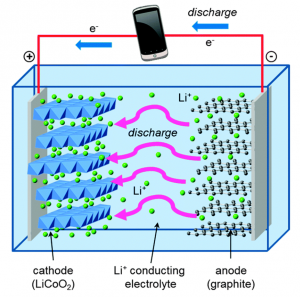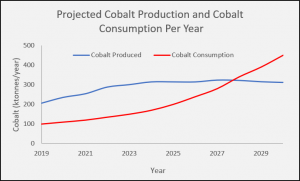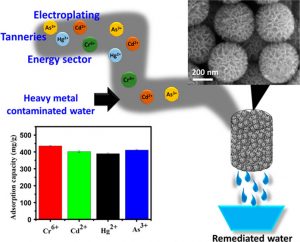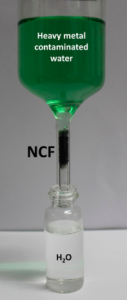Cobalt is an important part of most batteries, and our global supply is running low. The demand of cobalt in the next 10 years is expected to increase by roughly 300%, and a team of researchers from the Massachusetts Institute of Technology decided to investigate exactly how much of a problem this increased demand could be.

Source: LithiumNews.com
Lithium-ion batteries, such as the ones found in electric cars and most smart phones, require a cathode for the battery to operate, and cobalt is the most common choice due to having a high energy density compared to its competitors. The study focuses on the amount of cobalt we are mining and processing now compared to how much we will need by 2030. By their estimates, the world may require 450 k tonnes per year in cobalt.

Values interpolated from research data. Source: Fu et al.
The researchers employed a methodology of analyzing market trends in the sales of electric cars, which account for roughly 60% of all cobalt use. To determine the amounts of cobalt production, they surveyed mining companies to determine the amount of cobalt being produced in cobalt mines, and as a by-product in non-cobalt mines. With these values as their main metrics, they made projections for the next decade with the hopes of seeing if, and when, our cobalt might run short.
The methodology is not perfect, however; it is a forecast and not a guaranteed trend. Thus, the data presented is largely extrapolated and estimated from general trends. But the goal of the paper was not to draw exact conclusion. Their goal was to investigate how sustainable this resource is in the short term.
The main take-away from their paper are that end-of-life reclamation of cobalt-reliant materials is going to start being more and more necessary. So even with all of our new technologies, the message of sustainability stays the same: Reduce, Reuse, Recycle!
Griffin Bare




